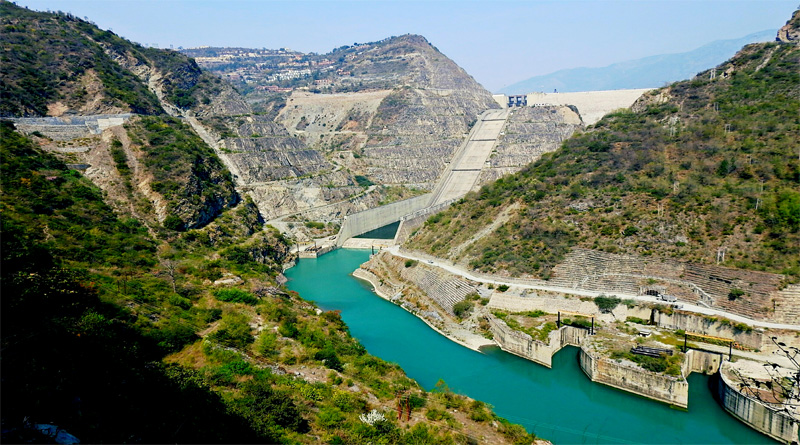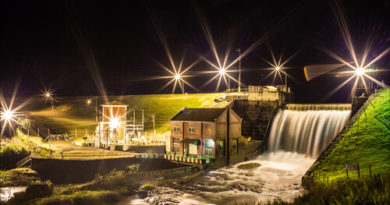India Finalizes Its Guidelines For New Pumped Hydro Projects, Makes 10 New Amendments
The Indian Ministry of Power on April 10 released its new finalized guidelines for establishing new pumped hydro projects (PHPs) in the country. It comes after around two months since it released its draft guidelines on the issue and sought stakeholder comments.
 The new guidelines for pumped hydro projects were released on April 10
The new guidelines for pumped hydro projects were released on April 10
The government is pushing for the growth of PHPs (Pumped Hydro Power Storage) to increase the energy storage capacity in the country to accommodate and scale up the variable renewable energy in India. We at IamRenew, analyzed the latest guidelines on PHPs with the last draft norms on the issue as issued by the Ministry on February 15 this year. Following are the ten major changes the final guidelines witnessed compared to its draft norms.
1. Direct award of projects to JVs of CPSUs & SPSUs through nomination
The final guidelines for PHPs have proposed that the states can also directly award projects through a Joint Venture (JV) between the Central Public Sector Utility (CPSU) and State PSU on a nomination basis. It is in addition to the same entitlements earlier given to the CPSUs and SPSUs alone.
2. Increased share of home state first refusal powers
The new norms had increased the quantum of project capacity in home states where the home states have been given power for first refusal when the awards were given either through nominations or competitive bidding. The new norms claimed that the home state would have the power of first refusal up to 80 percent of the p[roject capacity, and the concerned commission would fix the tariff. In the February draft norm, the capacity ceiling stood at 40 percent.
3. Proposal of SPV for Tariff Based Competitive Bidding (TBCB) projects
The new norms also proposed that to carry out the preparation of a Detailed Project Report (DPR) and other purposes; the states will form a Special Purpose Vehicle (SPV). “SPV may be responsible for pre-construction activities such as preparation of project report, land acquisition, environment, forest clearance, etc. Such a dispensation would ensure the possibility of tariff determination based on competitive bidding,” the norms said.
4. Self-identified off-stream PHPs
The guidelines also added a new provision for awarding projects. It said that besides nomination, competitive bidding, and TBCB, the states could also grant projects through the self-identified off-stream (away from the river) PHPs.
“ln addition to the above methods, developers may also self-identify potential off-stream sites where PSPs can be constructed. Since these sites are away from the riverine system and do not utilize natural resources like river streams, allotment from State Governments would not be required to develop PSP projects on such sites,” the norms said.
5. Relaxation for a timeline to start projects
After getting the award, the new norms said the project developers needed to start construction within two years, as mentioned in the draft guidelines. However, it added that states could give a relaxation of one year for projects with a delay due to pending Environmental Clearance and Forest Clearance.
6. No upfront premium for project allocation
“ln order to ensure the viability of the Pumped Storage Projects, States shall ensure that no Upfront Premium is charged for project allocation,” the new provisions of the guidelines said.
7. 80% monsoon power to the home state at the rate of secondary energy
Under the section of “market reforms,” the ministry has added this new provision which claims that 80 percent of the power generated at PHPs operating as conventional hydropower stations during monsoon will be given to the home state at the rate of secondary energy as fixed by the CERC.
8. Financial aid by REC, PFC, and IREDA
The newly added provisions under the norms said that financial institutions like PFC, REC, and IREDA should treat PHPs at par with other renewable energy projects while extending long-term goals of 20-25 years tenure. The debt-equity ratio for these projects can go up to 80:20 in consultation with financial institutions.
9. No Electricity Duty and Cross Subsidy Surcharges for PHPs
The new guidelines for PHPs also proposed that states and the concerned authorities will exempt these projects from electricity duty and cross-subsidy surcharges on pumping power to charge PSPs.
10. Baseline data collection for off-stream projects
While the new norms have maintained that there will be no need for Environmental Clearance for off-stream PHPs but then there will be more liberalisation for allowing baseline data for-season for off-stream closed loop PSPs and seasons for off-stream open loop PSPs (excluding monsoon season) for carrying out the Environmental Impact Assessment (EIA) and preparing Environmental Management Plan (EMP).




